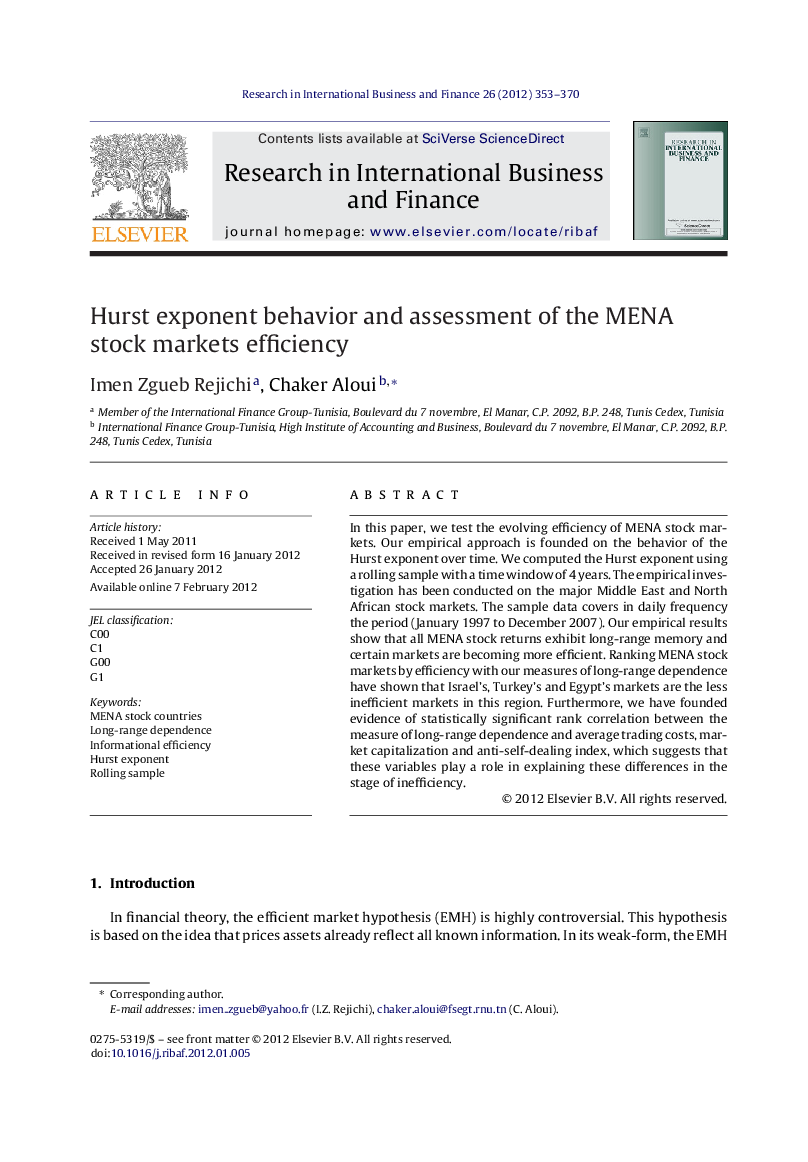| Article ID | Journal | Published Year | Pages | File Type |
|---|---|---|---|---|
| 1002306 | Research in International Business and Finance | 2012 | 18 Pages |
In this paper, we test the evolving efficiency of MENA stock markets. Our empirical approach is founded on the behavior of the Hurst exponent over time. We computed the Hurst exponent using a rolling sample with a time window of 4 years. The empirical investigation has been conducted on the major Middle East and North African stock markets. The sample data covers in daily frequency the period (January 1997 to December 2007). Our empirical results show that all MENA stock returns exhibit long-range memory and certain markets are becoming more efficient. Ranking MENA stock markets by efficiency with our measures of long-range dependence have shown that Israel's, Turkey's and Egypt's markets are the less inefficient markets in this region. Furthermore, we have founded evidence of statistically significant rank correlation between the measure of long-range dependence and average trading costs, market capitalization and anti-self-dealing index, which suggests that these variables play a role in explaining these differences in the stage of inefficiency.
